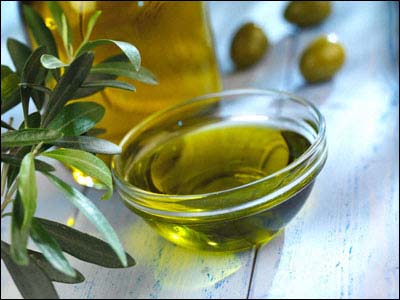Olive Oil May Reduce Stroke Risk, Study Finds
By Mary West | Jul 14, 2011

A new study suggests consuming large quantities of olive oil through heavy use in cooking and dressings may significantly reduce your stroke risk. Investigators in France discovered that older adults who used olive oil extensively had a 41% lower stroke probability than those who did not use it at all: ABC News reports. As stroke is the third leading cause of death in the United States, these results may have very important implications.
The research published in the June 15 online issue of Neurology studied the effects of different amounts of olive oil consumption in 7600 elderly adults. The authors observed that those who consumed moderate to high quantities of olive oil had lower stroke risk factors in the areas of weight, triglycerides and certain cholesterol parameters. This group was also more likely to engage in regular exercise and eat healthy foods, such as fish, fruits and vegetables. After the investigators adjusted the results to accommodate these lowered risk factors, dietary variables and activity levels, adults with a high olive oil use were found to have a 41% lower incidence of stroke.
These findings led the chief author, Dr. Cecelia Samieri of the University of Bordeaux, and her colleagues to indicate that recommendations for liberal use of this oil may be added to the advisory – of eating more fruits and vegetables – in dietary prevention guidelines for stroke. They state that since the study factored out other dietary variables and stroke risks, olive oil may be deemed a major protective part of the Mediterranean diet for this disease.
Anyone interested in incorporating olive oil into his or her diet to reduce stroke risk may wonder what type of olive oil to buy and exactly how much to use. Although the study did not specify the type of oil used, the author notes that nearly all olive oil sold in France is the extra virgin variety. In regard to quantity, more research is required to determine the best range.
According to Health Day, it is not clear which aspect of olive oil use prevented the strokes. One postulation is the substitution effect of replacing saturated fat with this mono-unsaturated oil. Another theory is that polyphenols, antioxidant nutrients contained in olive oil, exert an anti-inflammatory action in the vascular system.
Although the results are promising, the authors caution against drawing definitive conclusions, contending that further research is needed. They note that other potentially health enhancing effects of olive oil, not considered in the research, might be influencing the link to reduced stroke risk. Furthermore, they point out that the oil is normally consumed in tandem with other healthy foods. Due to the complexity involved in ruling out factors that could have affected the results, it is too early to prove the existence of the link.
Since olive oil has been associated with benefits for other medical conditions, such as obesity, hypertension and coronary artery disease, the link with reduced stroke risk is plausible despite the current lack of proof.
Learn more: http://www.NaturalNews.com/032982_olive_oil_stroke_risk.html#ixzz1S0G3pGGe















